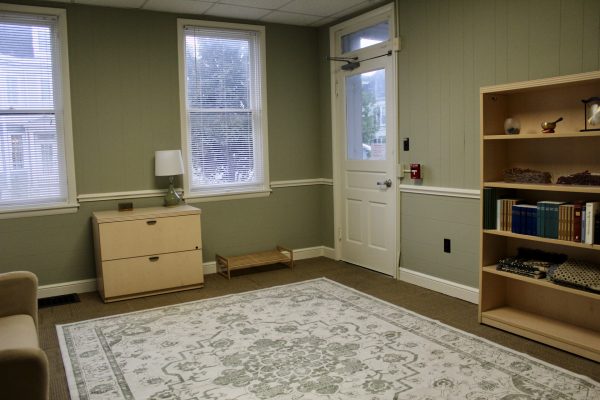Clarke Forum Examines History of Anti-Black Racism and Fatphobia
The Clarke Forum for Contemporary issues helped kick-off the annual “Love Your Body Week” with a virtual presentation regarding the history of anti-Black racism and weight stigma on Tuesday, Feb. 9 at 7 p.m. with Doctor Sabrina Strings, associate professor of sociology at the University of California, Irvine.
Strings delivered her presentation, “Fatphobia as Misogynoir: Gender, Race and Weight Stigma” to an audience of 130 Dickinson College community members via Zoom livestream. Much of her presentation regarded her academic research and her latest book, “Fearing the Black Body: The Racial Origins of Fatphobia.”
Strings discussed the historical relevance of fatphobia against Black people. In the 18th Century, the development of race science fueled stereotypes of Black people and led to obsessions about their bodies. String recounted the story of Saartijie Baartman, a South African woman sold to a European man for the purpose of entertaining Europeans with her body. Baartman had a reportedly larger body than the Europeans, and people became fascinated with her proportions. According to String, Baartman’s presence in European society contributed to white people’s fears of the Black body.
Before the 18th Century, the White-European beauty standard for women was fatness. However, Strings said that the beauty standards for white women shifted during the 18th Century to appear thin, asexual and quiet—an assumed opposition to the character and physical traits of Black women.
Strings then transitioned the presentation into myths about obesity of Black women. Specifically, Black women are reported to have higher Body Mass Indexes (BMI) and are therefore more likely to be considered obese. String argued that BMI is not a reliable tool of measurement and does not account for different body types. Additionally, she said that BMI is a form of colorblind racism because there was no data used to create it.
String concluded her presentation with changing beauty standards today, but she said thinness and whiteness is still the ideal for female beauty.
Students in attendance responded positively to the event. Nhi Ly ’22 said the event was spectacular and that, “The talk showcased the embedded structure of oppressions on Black women and specifically on their bodies.” Carolina Celedon ’22 said that she found Strings’ presentation educational. “The biggest thing I took away was that white women determine what body shape is desired and acceptable and that the treatment of fat folks…is an everyday burden that straight sized folks should continuously work to eradicate,” Celedon said.
Bao Tran ’23, a student project manager for the Clarke Forum and the co-facilitator of the event, said “the event truly educates us on the actions that we had once regarded as normal can be damaging to the mental health of certain groups of people.”
“Fatphobia as Misogynoir: Gender, Race and Weight Stigma” was sponsored by the Clarke Forum and co-sponsored by the Women’s & Gender Resource Center. The event was part of the annual “Love Your Body Week” which is a collaboration between departments and divisions including Asbell Center; Center for Spirituality and Social Justice; Clarke Forum; Office of LGBTQ Services; Women’s and Gender Resource Center, Psych Club, Department of Theatre and Dance; Waidner-Spahr Library; and the Wellness Center.



